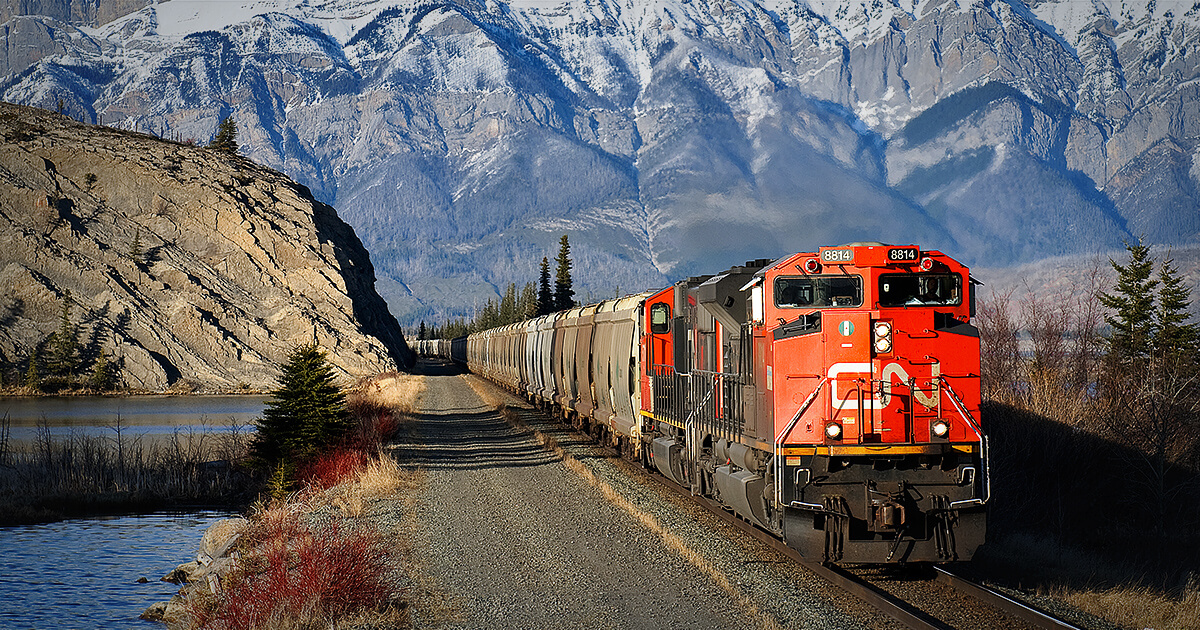The Canadian rail industry is currently grappling with a historic work stoppage as both Canadian National Railway (CN) and Canadian Pacific Kansas City (CPKC) have initiated lockouts due to unresolved labor disputes with the Teamsters Canada Rail Conference (TCRC). This unprecedented dual shutdown of the nation’s two major railroads is a significant event that has already begun to disrupt key supply chains across North America.
At Commtrex, we understand the critical importance of seamless rail operations to the broader economy and the intricate networks that support various industries, including agriculture, mining, automotive, and energy. As the Canadian rail strike begins, we recognize the immediate challenges it presents for shippers and supply chains across North America. We're committed to supporting our members and the industry during this critical time. Whether you're facing disruptions or need alternative solutions, our extensive network can help you find storage, transloading facilities, and more across North America.
Key Issues at the Core
The crux of the dispute centers around several contentious points:
- Wages and Compensation: Both CN and CPKC have proposed revised compensation models that shift from the traditional mileage-based pay to a more predictable hourly wage system. This proposal includes scheduled shifts with guaranteed rest periods, but the union has raised concerns about its implementation, particularly regarding safety and work-life balance (CN Transportation Services) (Global News).
- Safety and Scheduling: The TCRC has expressed significant concerns over the proposed scheduling changes, which they argue could undermine safety standards by increasing worker fatigue and forcing relocations that disrupt family life. Both railroads maintain that their offers meet or exceed safety regulations, yet the union remains unconvinced (KVNF) (CN Transportation Services).
- Forced Relocations: Another sticking point is the proposal by CN to implement a "forced relocation scheme," which would require workers to temporarily relocate to fill labor gaps in remote locations. The union has strongly opposed this, citing the disruption it would cause to employees' personal lives (Global News).
Economic and Operational Implications
For rail executives and professionals, the implications of this shutdown are profound. The halt in operations is estimated to cost the economy approximately $1 billion in goods traffic per day (CityNews Toronto). This disruption extends beyond Canada’s borders, affecting U.S. industries reliant on cross-border rail shipments.
At Commtrex, we are closely monitoring the situation and its impact on rail logistics and transloading operations. The shutdown affects not only freight movements but also passenger services, with several commuter lines in major cities like Toronto, Montreal, and Vancouver being suspended (CityNews Toronto). As rail professionals, the need for contingency planning and communication with customers has never been more critical.
Strategic Considerations Moving Forward
Given the current impasse, several scenarios could unfold:
- Government Intervention: There is growing pressure on the Canadian government to intervene, either by mandating binding arbitration or by passing back-to-work legislation. However, such actions carry political and operational risks and may not offer a long-term solution to the underlying issues (KVNF).
- Prolonged Negotiations: If the lockout continues, shippers must prepare for sustained disruptions. This includes exploring alternative transportation modes, enhancing supply chain visibility through platforms like Commtrex, and maintaining close communication with all stakeholders.
- Resumption of Services: Should an agreement be reached, a phased resumption of services will require careful coordination. Prioritizing critical shipments and managing the backlog will be key challenges that require robust operational strategies.
As the situation evolves, Commtrex remains committed to supporting the rail industry through our platform’s capabilities in logistics optimization and transload management. The current labor dispute underscores the importance of resilience and adaptability in rail operations. We encourage all industry stakeholders to stay informed and proactive in addressing the challenges posed by this unprecedented event.
For further updates and detailed analyses, Commtrex will continue to provide insights and tools to help you navigate these turbulent times.

